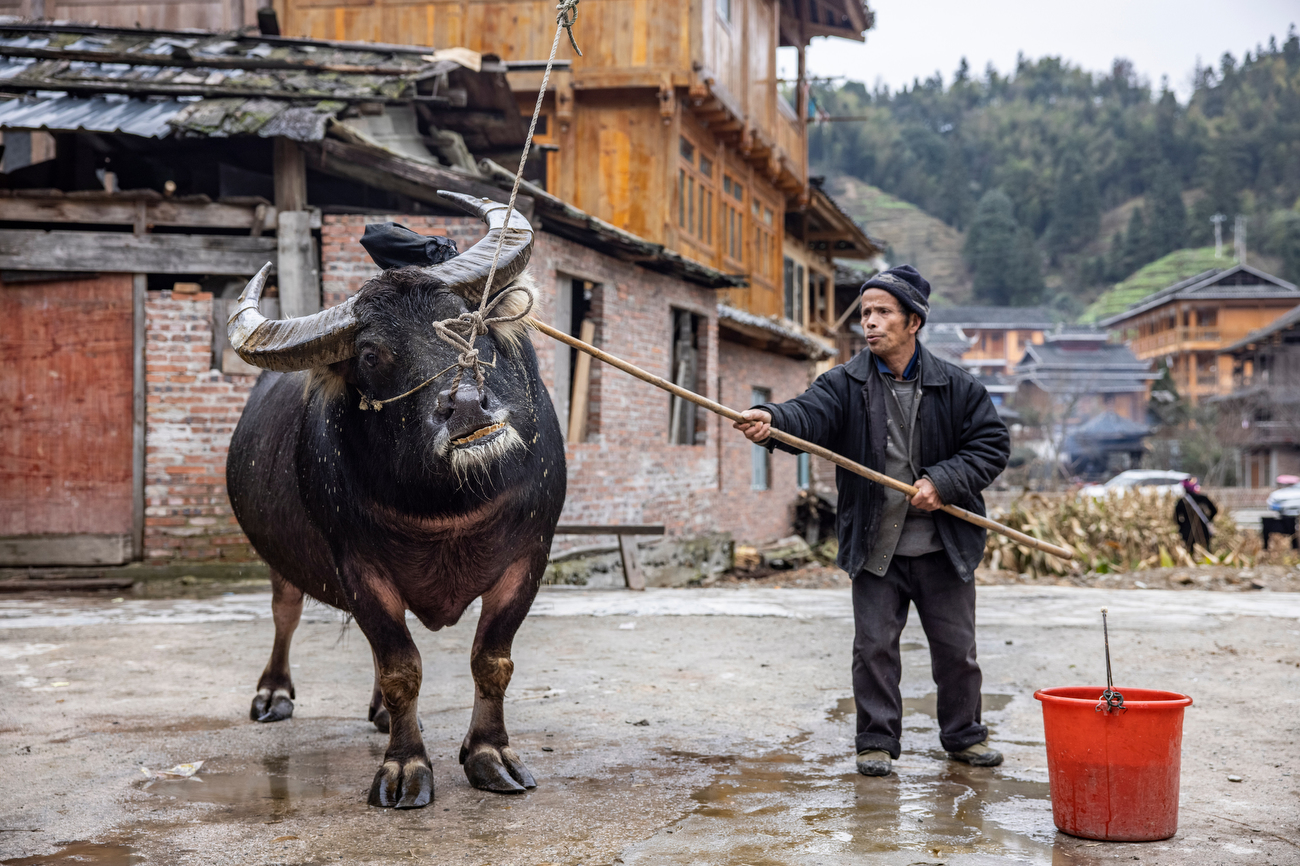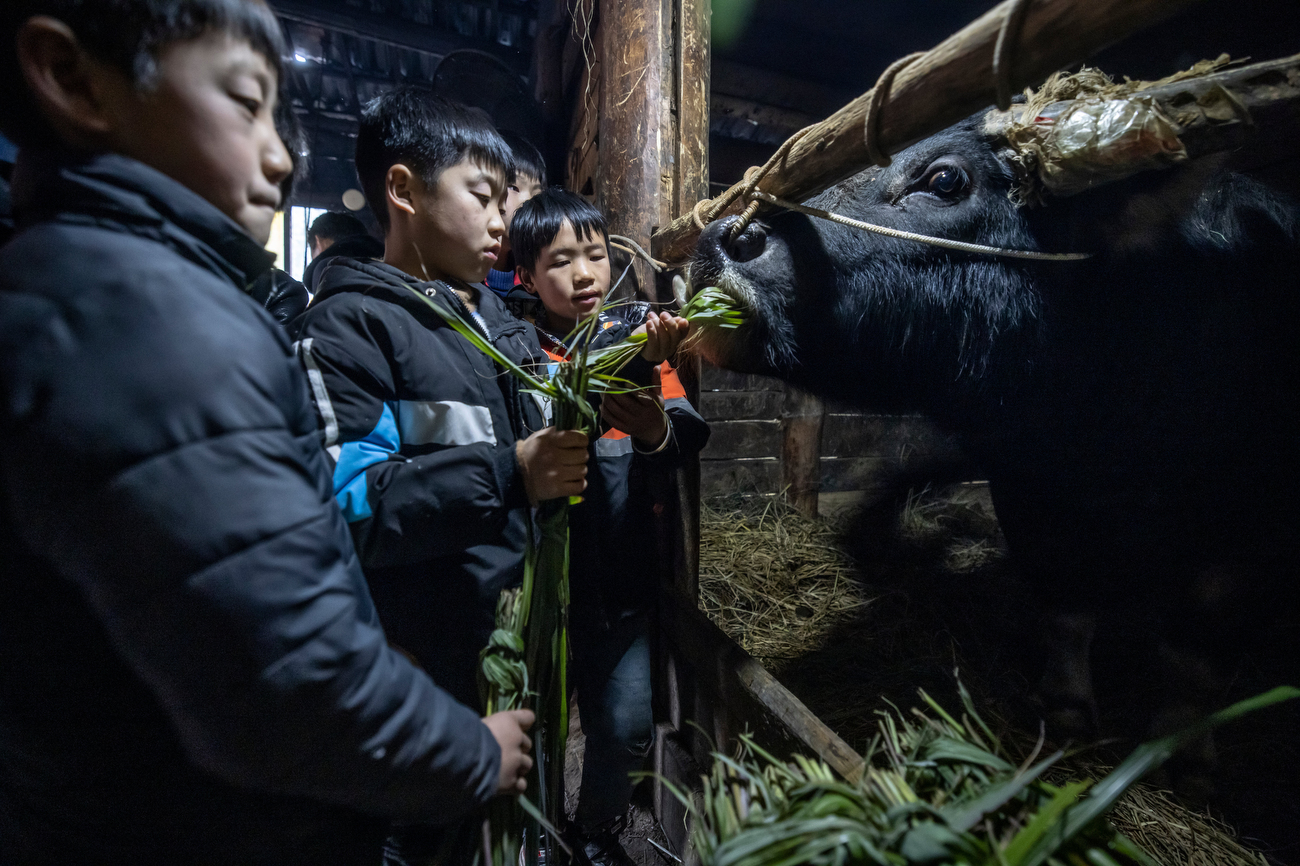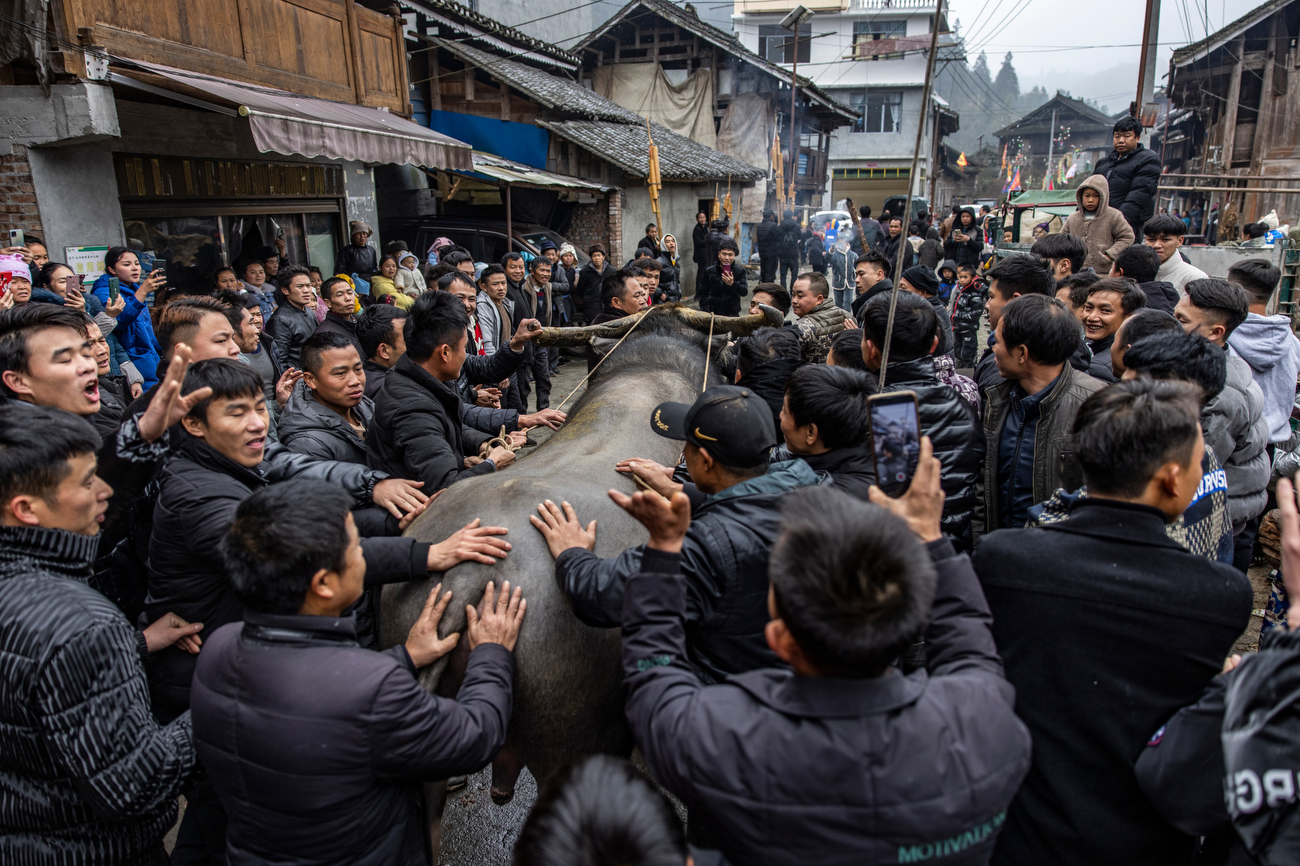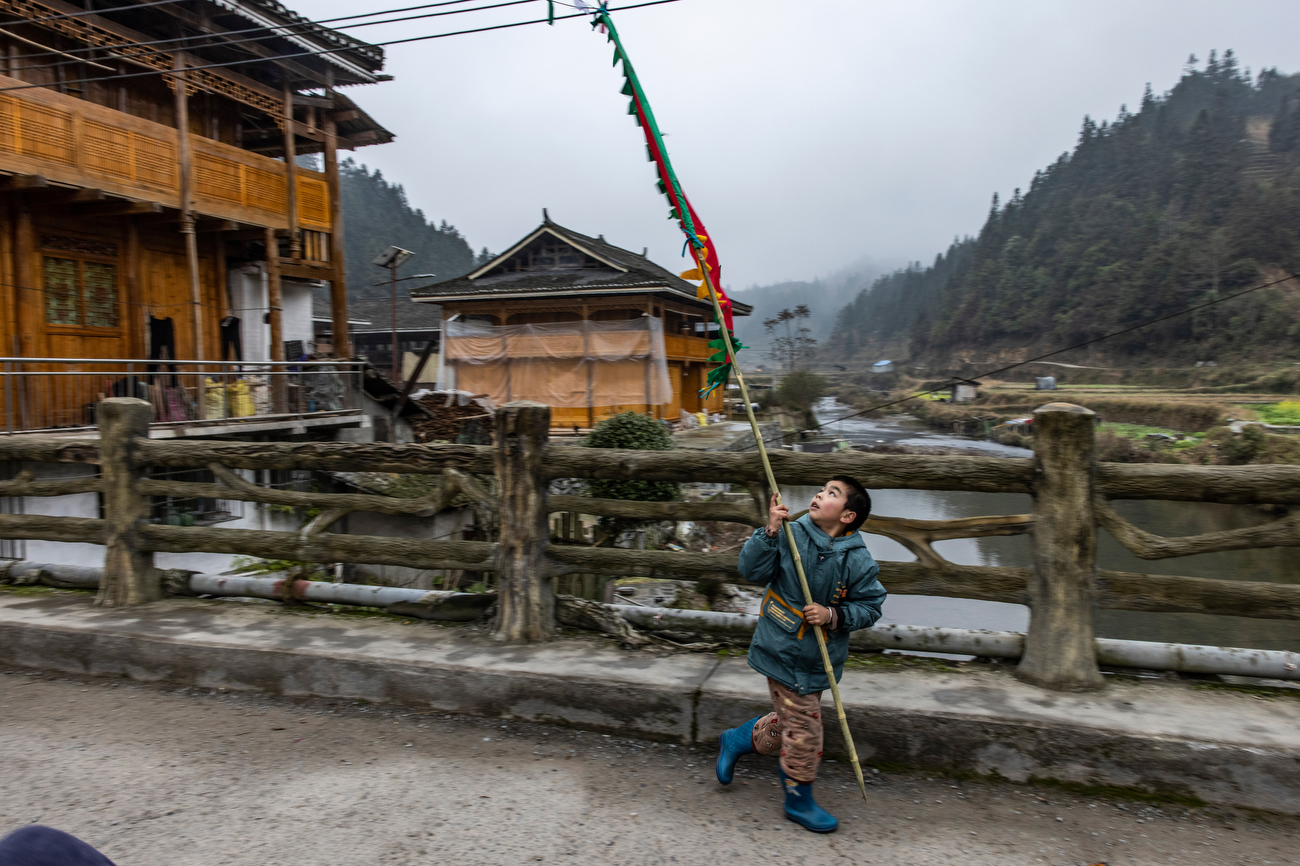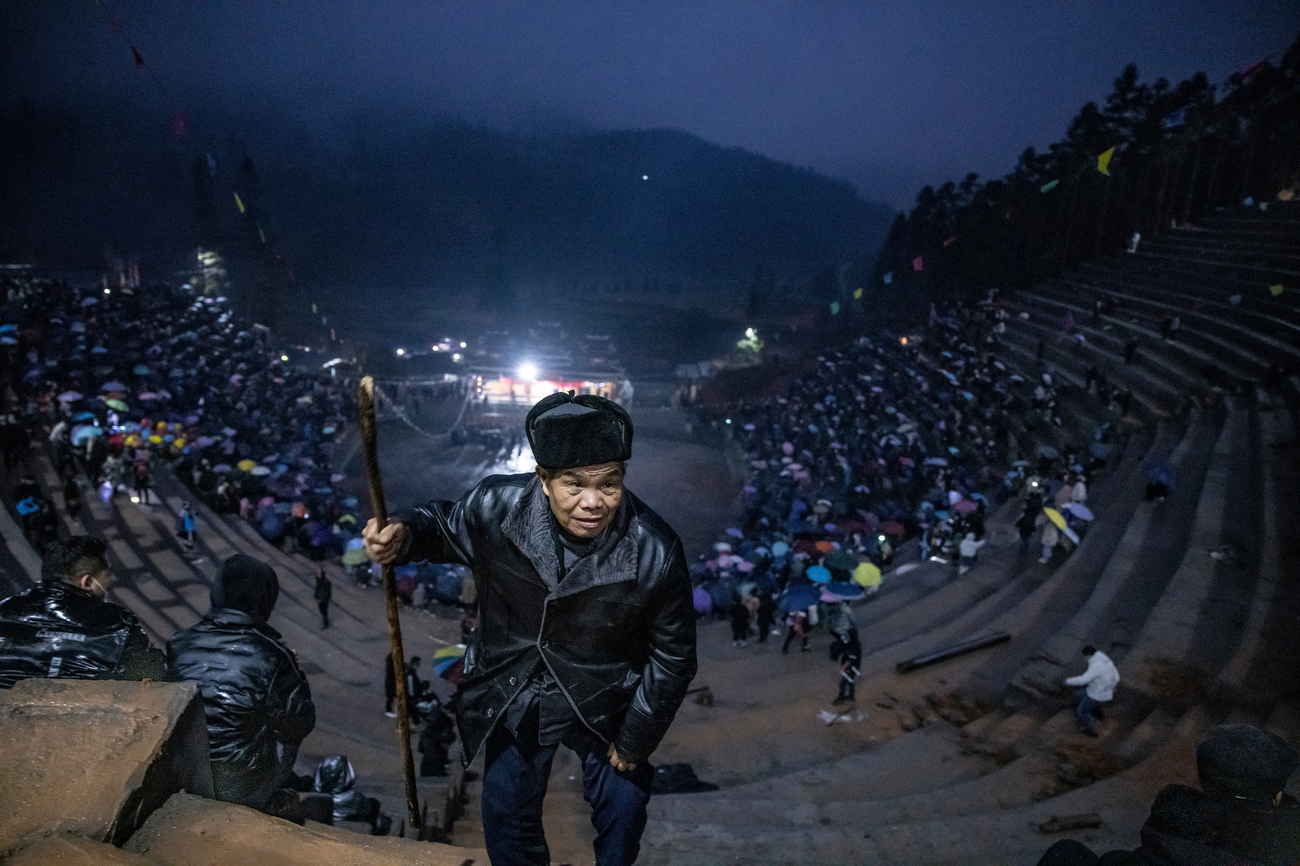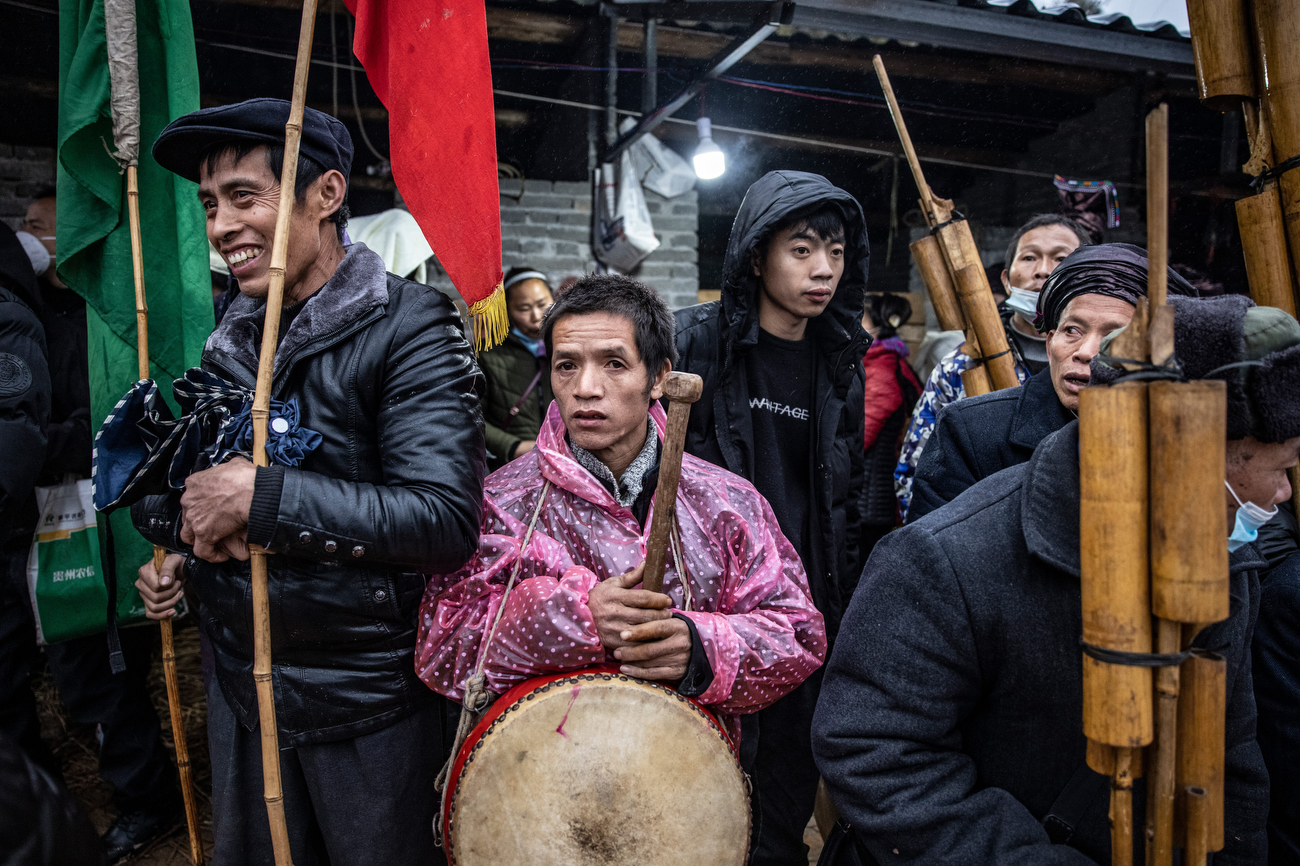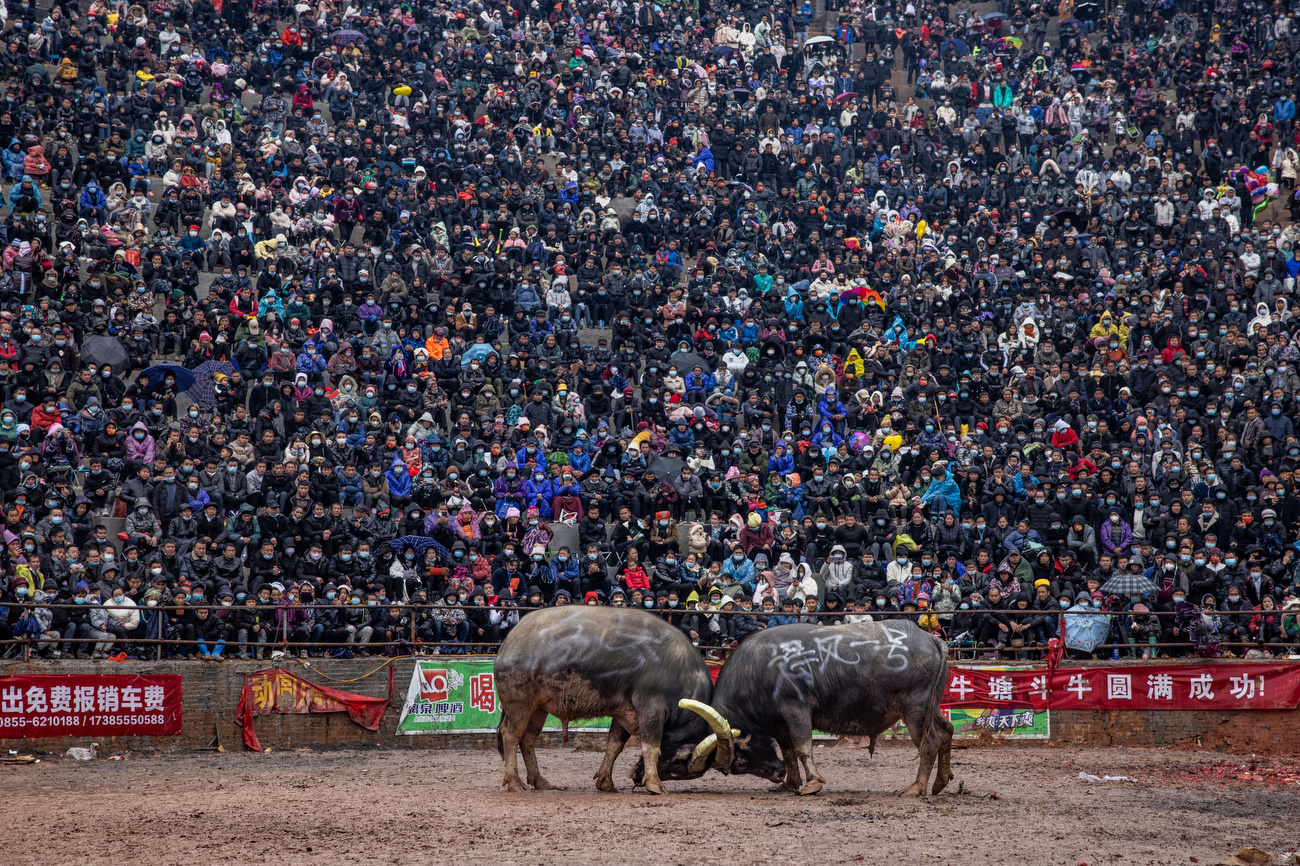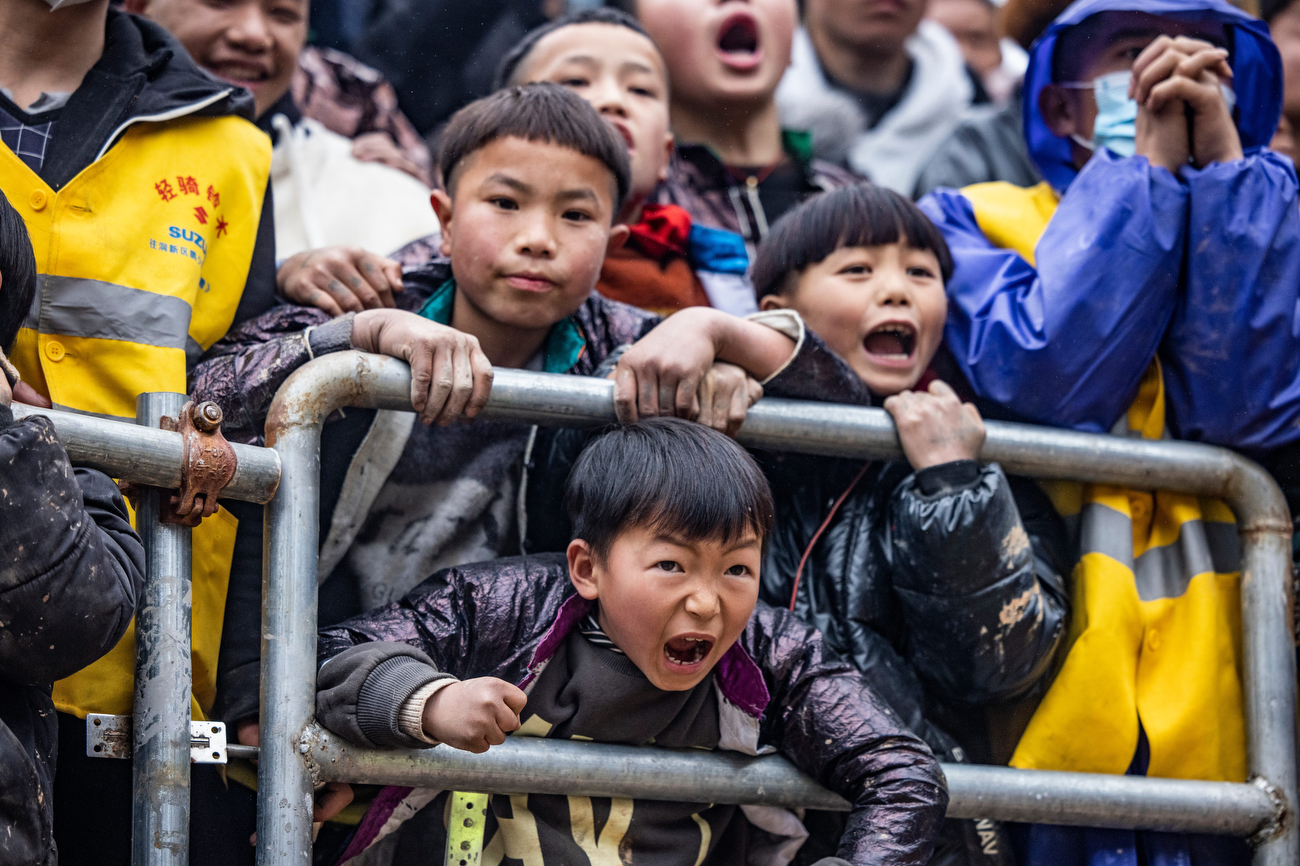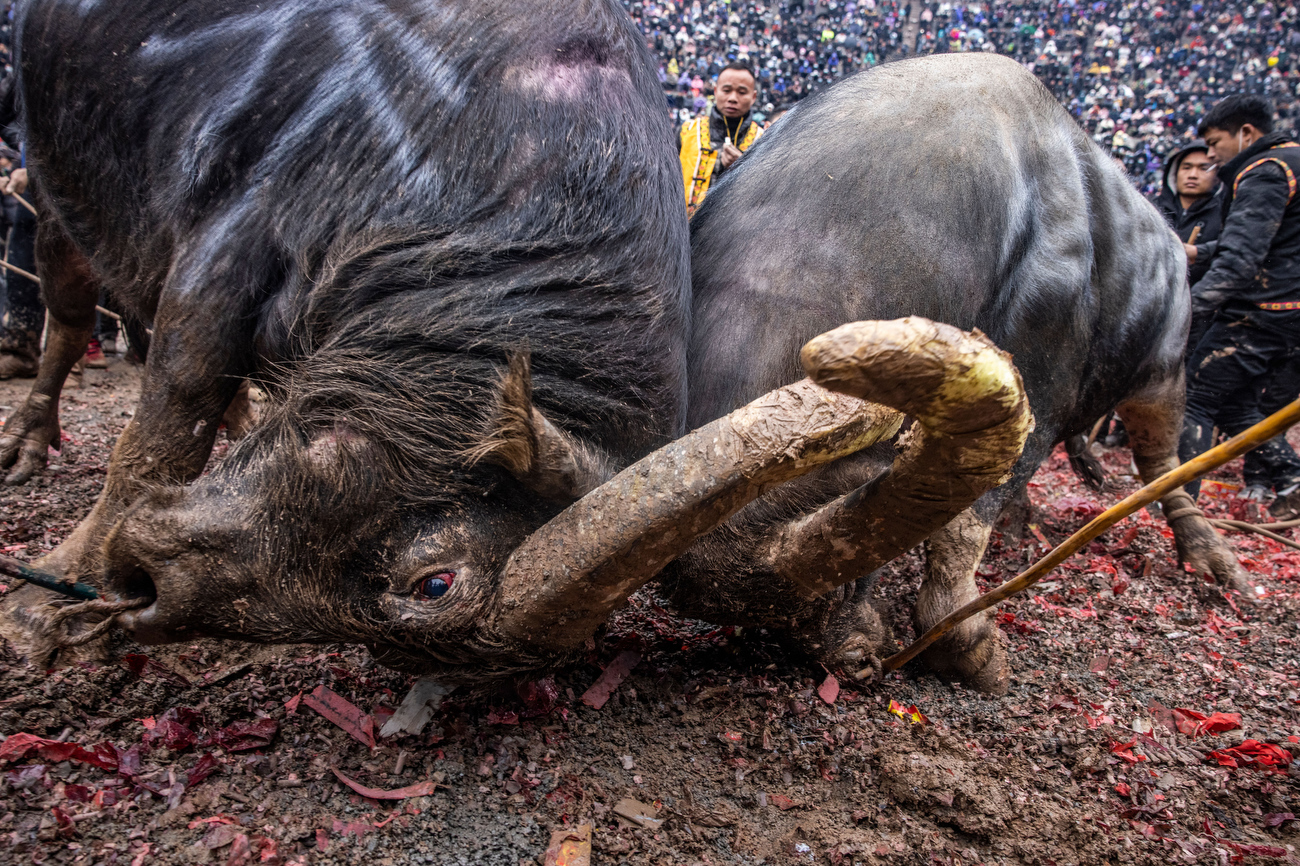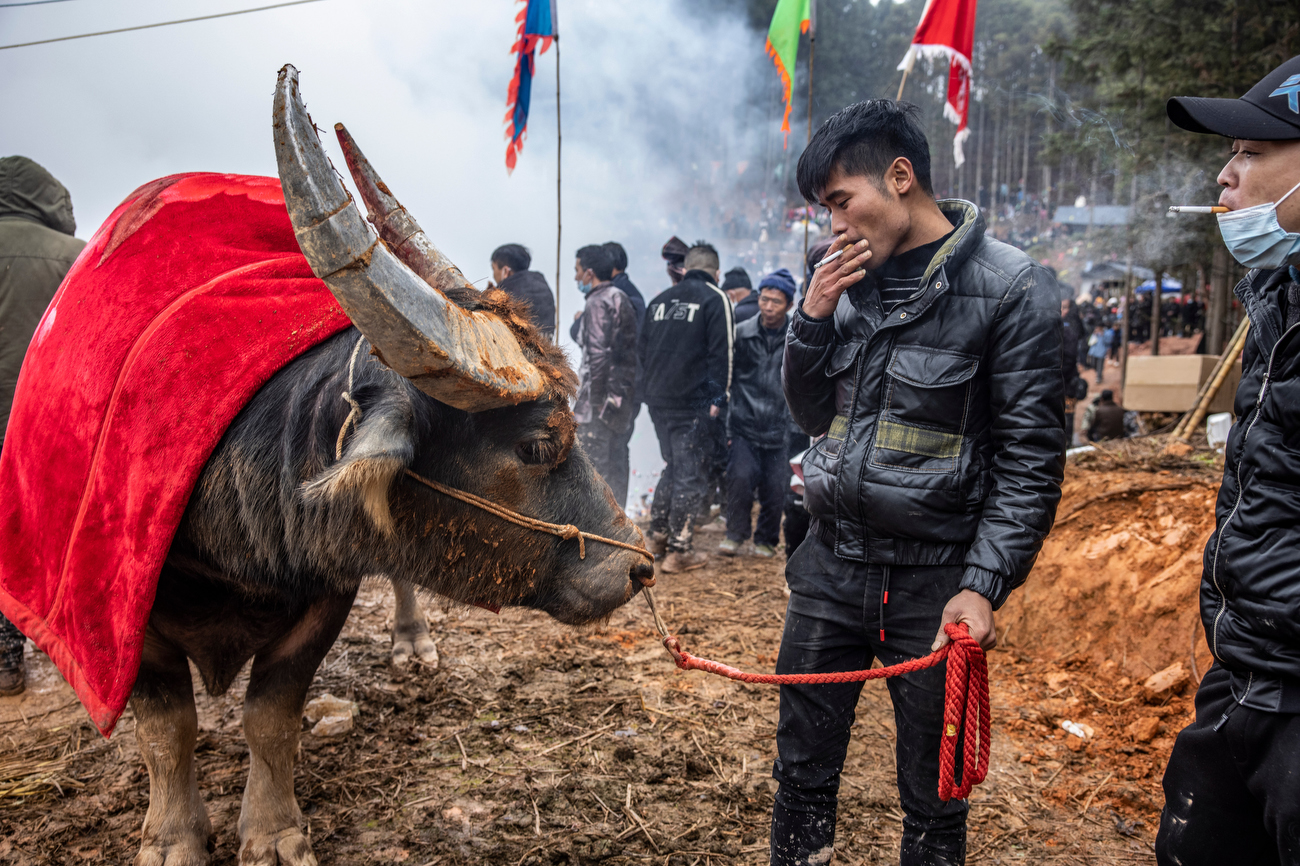The bull is a sacred animal to the Dong ethnic group in Guizhou, southwest China. “He has no owner; he is ours and we are his.” Liu Wang told me, as we sat outside the makeshift stables in the Wang Dong bull fighting arena. In just two days’ time Liu’s bull, Da Tou Wang would go to battle.
There are many theories as to why Dong people both worship and fight the bull. “Thousands of years ago, the life of man was very difficult” explains Wu Cheng Ling, commonly known as Teacher Wu. “Man would toil the field all day and night and only have time to eat one meal a day. The Gods, seeing the struggle, sent down the bull to help with the work.” Since the bull arrived, people were able to accomplish more work in a shorter amount of time. Dong people consider the bull to be a symbol of health, power, hard work and bravery.
Another vital aspect of Dong culture is the Drum Tower. Situated in the centre of the village, it is a large wooden, pyramid shaped structure where meetings are held and usually where the bull itself resides. “When a Drum Tower or a village had a dispute with another Drum Tower or village, instead of fighting each other, they would have the bulls fight.” Teacher Wu is of the Dong ethnic group and has studied its culture for decades. “The day before the fight, both villages would come together and celebrate with food and mi jiu (local rice wine).” The celebration ensured that there was no animosity between the villages and as time went on, the bull fight became a form of celebration. To this day, the Dong people say. ‘逢节必斗’ (When there is a festival, there must be a bull fight’). The bull is held in such high regard that when it dies it has a festival-style funeral and is buried in a tomb on the hills overlooking the village.
